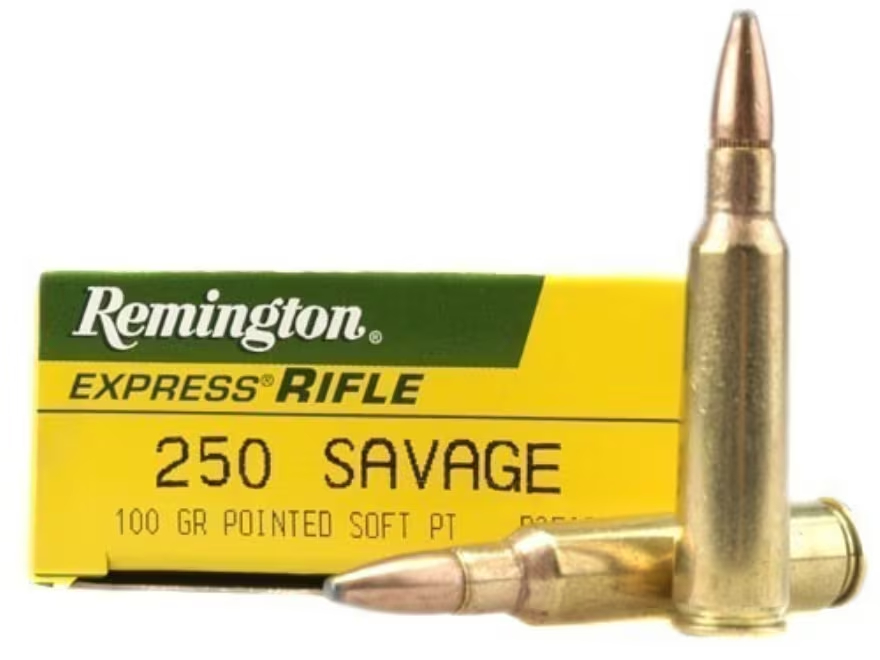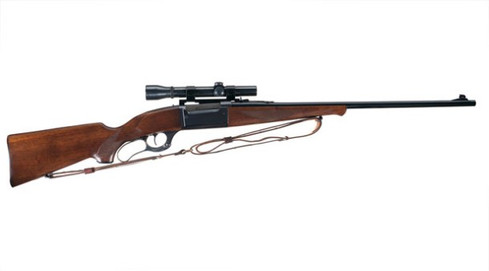The Savage .250-3000 Rifle: Innovation, Legacy, and Lasting Impact
- Aug 17, 2025
- 4 min read
Updated: Aug 19, 2025
Few cartridges in firearms history can claim the fame of being a “first.” The .250-3000 Savage, often shortened to .250 Savage, holds a unique place as the first commercial cartridge to achieve 3,000 feet per second (914 m/s) muzzle velocity with an 87-grain bullet. Introduced in 1915 and paired with Savage’s classic rifles, it quickly earned a reputation for accuracy, efficiency, and hunting effectiveness.
Origins of the .250-3000
The .250-3000 was designed by the legendary Charles Newton and released by Savage Arms in 1915. Newton envisioned it as a flat-shooting, small-bore deer cartridge, striking a balance between speed, manageable recoil, and killing power.
Savage initially chambered it in the Model 1899 lever-action rifle (later known as the Model 99). The round’s high speed became its selling point — hence the name “.250-3000.”
Cartridge Design and Specifications
The .250 Savage was based on a shortened .30-06 Springfield case, necked down to accept a .257-inch (6.53 mm) bullet. Unlike older heavy bullets moving slowly, the .250-3000 proved that light, fast projectiles could deliver shock and lethality effectively.
Key Specifications (factory loads):
Bullet diameter: 6.53 mm (.257 in)
Case type: Rimless, bottleneck
Case length: 48.7 mm (1.912 in)
Overall length: 63.5 mm (2.515 in)
Bullet weights:
5.6 g (87 gr) – original high-speed load
6.5 g (100 gr) – common hunting load
7.6 g (117 gr) – heavier option for penetration
Muzzle velocity:
5.6 g (87 gr) → ~914 m/s (~3,000 fps)
6.5 g (100 gr) → ~850 m/s (~2,800 fps)
7.6 g (117 gr) → ~790 m/s (~2,600 fps)
Muzzle energy: ~2,100–2,400 J (depending on bullet weight)
This performance, especially in 1915, was groundbreaking and helped usher in the “high velocity era” of hunting cartridges.
The Rifles: Lever and Bolt Action
Savage Model 1899 / Model 99 (Lever Action)
The Model 1899/99 lever-action rifle was the first firearm chambered for the .250-3000. Known for its rotary magazine, hammerless design, and strength, it could safely handle the higher pressures of this modern cartridge.
Hunters loved the combination of:
Fast cycling lever-action design
Flat trajectory for open-country shooting
Light recoil compared to .30 calibers
The Model 99 in .250-3000 quickly became a deer rifle icon, especially popular in North America.
Savage Bolt-Action Rifles
Later, Savage and other manufacturers offered the .250-3000 in bolt-action rifles, which allowed the cartridge to shine in terms of accuracy. The Savage Model 1920 bolt-action rifle was among the first — a lightweight sporting rifle that made the most of the cartridge’s range and precision.
In bolt-action form, the .250-3000 became a favorite of handloaders and varmint hunters who wanted:
Higher accuracy potential
Ability to handle different bullet weights
More versatility compared to lever-action models
Even today, custom rifle builders occasionally chamber the .250 Savage for hunters who appreciate its blend of speed, accuracy, and mild recoil.
Hunting Effectiveness and Range
The .250-3000 Savage proved to be an excellent deer and antelope cartridge, offering reliable performance without the recoil of larger calibers.

Practical Ranges (in meters):
Effective hunting range: ~230–275 m for deer-sized game
Target shooting range: 300+ m possible with careful shooting and modern optics
Best use: Medium game (deer, antelope, wild boar, blackbuck)
The 87-grain load was revolutionary but sometimes criticized for shallow penetration on larger animals. Hunters quickly shifted to 100–117 grain bullets, which gave the cartridge lasting respectability as a deer rifle.
Why It Endured
While many experimental cartridges fade into obscurity, the .250 Savage survived well into the 20th century because of its:
Balanced ballistics: flat-shooting but not overpowered
Manageable recoil: ideal for new shooters and youth hunters
Proven accuracy: especially in bolt-action rifles
Although overshadowed by later .25-caliber rounds like the .25-06 Remington and .257 Roberts, the .250-3000 retains a loyal following. Handloaders continue to keep it alive, and occasional factory runs by Hornady, Remington, and Prvi Partizan make it possible for enthusiasts to still use their rifles.
Legacy of the .250-3000
The Savage .250-3000 rifle and cartridge were ahead of their time. By showing that high velocity and small caliber could be just as effective as big, slow bullets, they influenced future designs like the .243 Winchester and even the modern .223 Remington.
For collectors, an original Savage Model 99 in .250-3000 remains a prize piece, symbolizing the transition from the blackpowder “big bullet” era into the modern high-velocity age.
Ballistics Comparison: .250-3000 Savage vs .22 Hi-Power vs .223 Remington
Cartridge | Bullet Weight | Bullet Diameter | Muzzle Velocity | Muzzle Energy | Effective Hunting Range* |
.250-3000 Savage | 6.5 g (100 gr) | 6.53 mm (.257) | ~850 m/s | ~2,340 J | ~230–275 m (deer-size) |
.22 Hi-Power | 4.5 g (70 gr) | 5.77 mm (.227) | ~860 m/s | ~1,625 J | ~180–230 m (deer-size) |
.223 Remington | 3.6 g (55 gr) | 5.56 mm (.224) | ~990 m/s | ~1,750 J | ~250–300 m (small/medium game) |
*Effective hunting range depends on bullet design, game size, and shooter skill.
Key Takeaways
.250-3000 Savage: Balanced performance, heavier bullets, excellent for deer and medium game with mild recoil.
.22 Hi-Power: Historically impressive, but limited by odd bullet diameter and penetration issues on larger animals.
.223 Remington: Modern small-bore speedster, flatter trajectory, best for varmints and light game, though used on deer with the right bullets.

Here’s a trajectory comparison chart (bullet drop up to 300 meters, zeroed at 100 m) for the three cartridges:
.250-3000 Savage (100gr)
.22 Hi-Power (70gr)
.223 Remington (55gr)
This shows how much each bullet drops as range increases. The flatter the line, the better for long-range shooting.

































